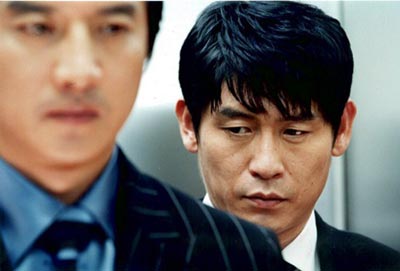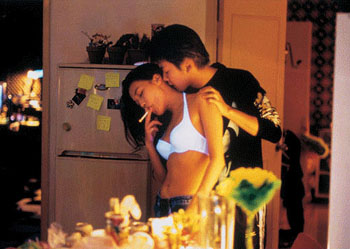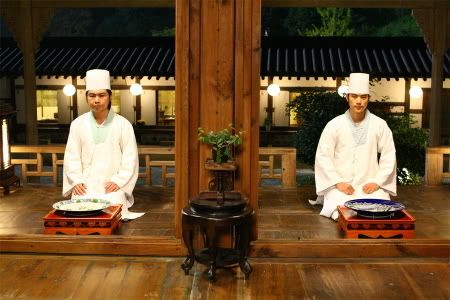 B
B
Directed by Takashi Yamazaki
DECADE NOSTALGIA!!!! "Always Sunset on Third Street 2" is the sequel to the highly acclaimed "Always Sunset on Third Street." Can you see how the two link up? Can you???
"Always Sunset on Third Street" told the interwoven stories of a number of denizens of a Tokyo street in post-war Japan, all of whom were doing there thing and pounding out an existence in the newly modernizing Japan while at the same time keeping up a ridiculously sweet rapport with each other. "Always 2" is much of the same, as the time that has elapsed between the first and second chapters of the series is minimal and many of the same characters as the first film are still grappling with the same issues they faced in the original "Always."
"Always 2," like the first film, focuses primarily on the Suzuki family who run their own auto repair shop with the help of country girl/adoptee Ruko, as well as their neighbor, struggling writer Chagawa, and his adpoted son Junnosuke. The various different elements of plot in "Always 2" would take way too long to explain and I won't even attempt to do it here. Suffice it to say, a new member is added to the Suzuki household and Chagawa falls on hard times. Obviously though, Third Street's (actually, do they even live on Third Street? Whatever--for the purpose of this review they do) residents finds a way to get through it and everything finishes nicely for everyone. For those of who shocked at how I just spoiled the ending for you, fear not--the conclusion to the film is readily obvious after just looking at the film's poster of watching a trailer for "Always" or "Always 2" on Youtube.
For anyone out there seeking a point of comparison for "Always 2" think of "Anne of Green Gables" with a bigger budget and set in Japan. All the same elements are there, from PG-Rated romance to a sweeping score to melodrama by the bucket full. "Always 2" wears it corniness like a badge of honour though, pretty much daring the audience to remain blasé and cynical which considerably softens the effect "eww" factor on me, at least. There is not way you can sit through this movie without coming out with an aw-shucks grin on your face just because the tenants of Third Street are so sweet, caring, and selfless that a part of you probably wishes they were your neighbors.
What really sets the "Always" films apart from other works that try to conjure up longing for a bygone era is that the "Always" series actually does conjure about a past era in painstaking detail, evidenced by the fact that both films have been immensely popular with older Japanese moviegoers, many of whom actually did grow up in the fifties. The "Always" films success at bringing back memories of Japan's recent past is probably due to the extreme attention to detail and decor in both films. Set designers and costume makers often don't get enough credit and when they do it is usually for historical epics but whoever was in charge of the "Always" films did a wonderful job making the film look like the actual fifties as opposed to a film like "The Untouchables" which looked like a bunch of guys from the eighties dressing up like they were from the thirties...which it was.
"Always Sunset on Third Street 2" is a satisfying and enjoyable film whose success at the Japanese box office does not surprise me one bit. It might not be for those who enjoy their films depressing and/or nuanced but then again, maybe those types of people just need a dose of Third Street in their lives.



















